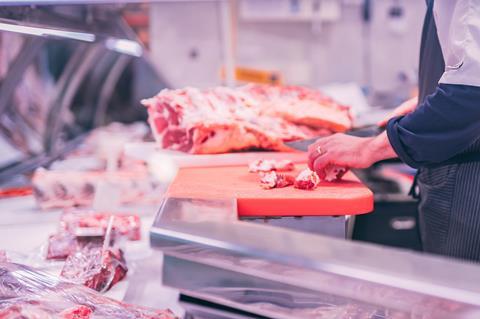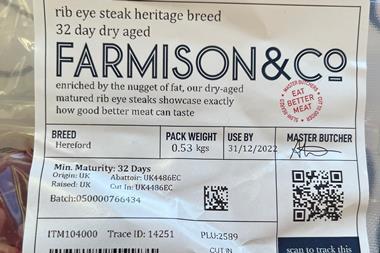
The meat industry has welcomed Defra’s postponement of its controversial new regulations on meat exports, following industry lobbying.
The rules, which were intended to come into force on 13 December, would have required vet-signed attestations on paper, confirming regular farm visits on EU meat exports. Farms that are not members of Red Tractor, Quality Meat Scotland or Farm Assured Welsh Livestock would have been compelled to provide further evidence at the point of export to official vets.
As reported by The Grocer last month, meat industry leaders had warned that the rapid introduction of the rules could lead to livestock being devalued, a loss of EU export markets, and a host of supply chain issues.
Enforcement has been postponed for 12 months, with Defra saying it was “aware of the concerns raised by industry about the process of providing evidence of regular vet visits”.
In a statement, Defra said: “We are engaging with businesses and the Royal College of Veterinary Surgeons to try and ease the burden on exporters in meeting these EU requirements.”
The deferral was “extremely welcome news”, Nick Allen, CEO of the British Meat Processors Association, told The Grocer. “It gives farmers time to get the vet visits done and it gives us time to get a system in place so for once it’s a happy decision.”
This was echoed by Craig Kirby, head of technical at AIMS who said: ”Whilst this postponement is most welcome, as it could have led to a cliff edge as far as completion of export health certificates for fresh meat to the EU is concerned, we sincerely hope that simple pragmatic solutions are accepted by Defra, the RCVS and others going forward.”
The BMPA had already begun “constructive” conversations with Defra on how the rules could be implemented in a year’s time, he added. “The important part is that the work starts immediately to get this problem solved, just delaying it is not enough. We need to actually find a solution to the problem.”
The problem with the regulations, according to industry experts, is the reliance on a paper-based system, which in practice would require each part of an animal to be accompanied by paperwork approving a vet visit ahead of any export.
This is in spite of EU laws only requiring verification of a vet visit in in the past year, which do not specify how the certification is carried out.
“It was a really serious problem and had the potential to cause some real disruption in the supply chain,” Allen said.
A solution would need to consider where and how vet visits would be recorded and to limit the paperwork and keep it accessible, he added. “It should be relatively easy to find a digital solution now that we have got the time to do it.”
According to Kirby, “the simple solution for industry, and to give the slaughterhouse vets the assurance they need, is to use the Defra funded Animal Health & Welfare Pathway visits – and we would encourage the officials involved to seriously consider that going forward.”



















No comments yet